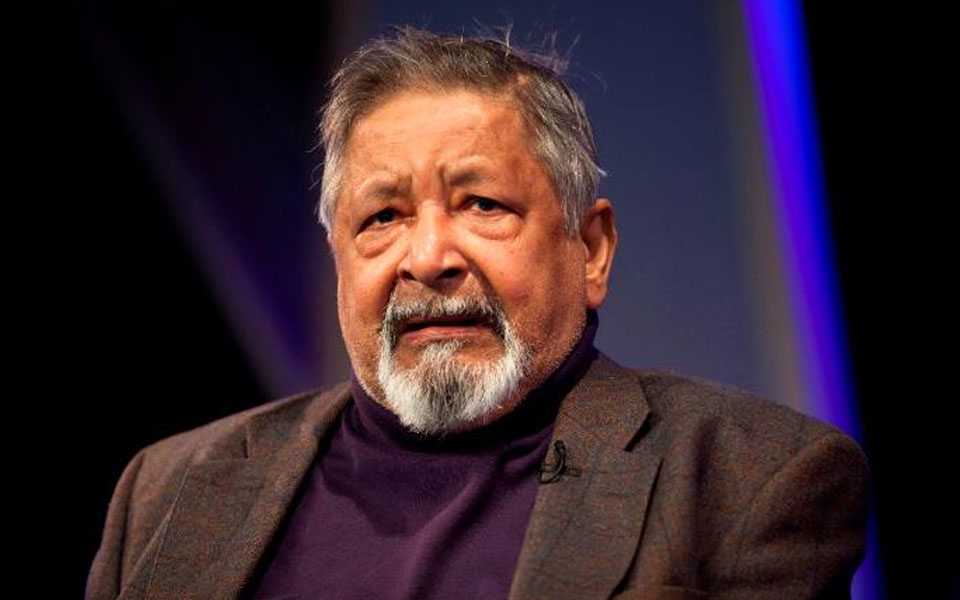London, Aug 12 : Nobel Prize-winning novelist V.S. Naipaul, who explored questions of place and identity for more than half a century, has died aged 85, his family announced on Sunday.
Lady Naipaul confirmed that her husband had died peacefully in London on Saturday, reports the Guardian.
"He was a giant in all that he achieved and he died surrounded by those he loved having lived a life which was full of wonderful creativity and endeavour," she said in a statement.
Vidiadhar Surajprasad Naipaul was born in 1932 in Chaguanas on the island of Trinidad and Tobago, to a family that had arrived from India in the 1880s, part of what he once called "an immigrant Asian community in a small plantation island in the New World".
Naipaul once said that he never felt at home in the community. In 2008, he recalled his childhood as "pretty awful" and his family as "terrible... very large, with too many people. There was no beauty. It was full of malice".
A government scholarship offered him a chance to escape, an immigrant once more as he travelled to Oxford in 1950 to study English. Turning from the comedy that began his career, Naipaul cast a steely eye on the shards of empire in a series of novels and travelogues.
Unflattering portraits of the West Indies, India, Africa and the Islamic faith brought both hostility and acclaim.
Critics accused him of holding people of the developing world in contempt even as his diamantine prose won him a series of awards including the Booker prize in 1971, a knighthood in 1989 and the Nobel Prize for Literature in 2001.
His first book, "The Mystic Masseur", was published in 1951 and a decade later he published his most celebrated novel, "A House for Mr Biswas", with a protagonist based on Naipaul's father took him over three years to write, reports the BBC.
His other noted works include "The Enigma of Arrival", "Miguel Street", "The Loss of El Dorado" and "Beyond Belief: Islamic Excursions among the Converted Peoples".
Naipaul's death was mourned by many including Geordie Greig, editor of the Mail on Sunday and a close friend, said his loss leaves a "gaping hole in Britain's literary heritage" but there is "no doubt" that his "books live on".
English novelist and journalist Hari Kunzru recalled interviewing him and said: "When we sat down, the first thing he said was 'tell me what you've read and don't lie'. Only then would he consent to be questioned."
Writer Jeet Heer called him a "powerful novelist" who "at his best approached Conrad and even the shadow of Dickens".
Let the Truth be known. If you read VB and like VB, please be a VB Supporter and Help us deliver the Truth to one and all.
Dubai: Smoke was seen rising from an area near the United States Consulate in Dubai, according to witness accounts cited by Reuters.
There was no immediate official confirmation on the extent of damage or whether there were any casualties in the incident.
Earlier, the US embassy in Riyadh, Saudi Arabia’s capital, was also attacked. Authorities reported damage to the premises, but no casualties were recorded.
The developments come amid heightened tensions in the region, with Iran continuing to target US interests in the Middle East following deadly attacks launched on Saturday by Israel and the United States.
Near US embassy in Dubai pic.twitter.com/z5VTZNVxNO
— Sahil Shah (@thesahilsshah) March 3, 2026





